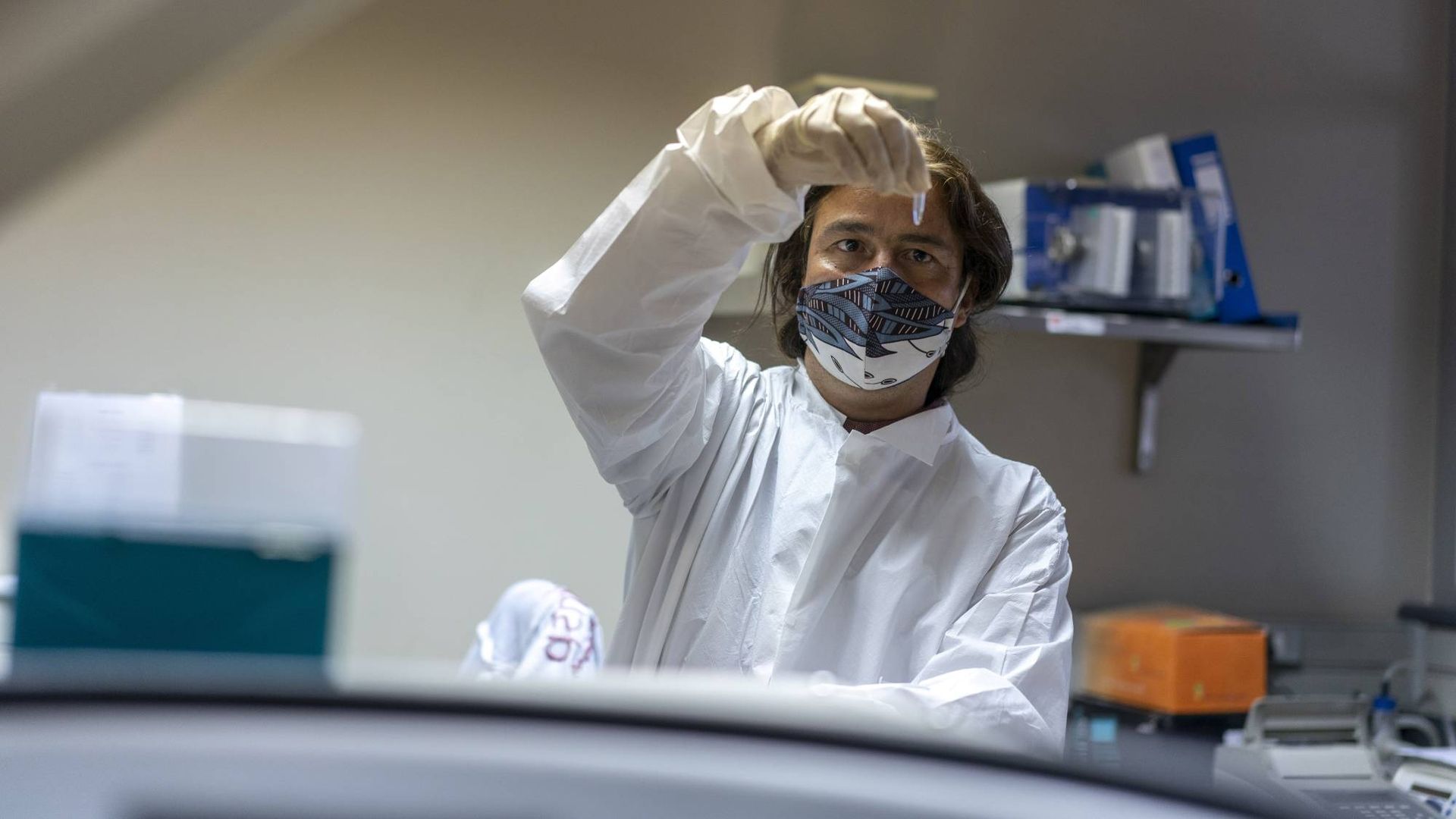The Omicron variant, now present in at least 23 countries around the world, was probably incubated in the body of a person with an immune system battered by HIV or another immune-compromising condition that can cause a prolonged coronavirus infection, according to the South African scientist who detected the fast-spreading genetic mutant.
Tulio De Oliveira said the emergence of Omicron in a patient unable to clear the virus quickly was “the most plausible” origin story for the world’s newest variant of concern.
There’s good reason to think so.
Researchers in the United States and Europe have seen coronaviruses with frightening mutations arise in COVID-19 patients whose natural defenses have been suppressed by drugs to fight cancer, manage autoimmune disorders like rheumatoid arthritis, or keep transplanted organs from being rejected.
De Oliveira has been warning for months that the people mostly likely to spawn such mutations in sub-Saharan Africa are the roughly 8 million with unrecognized or poorly treated HIV.
Largely young, unvaccinated and with debilitated immune systems, these people could “become a factory of variants for the whole world,” he said.
In June, his team chronicled the emergence of more than 30 genetic changes in SARS-CoV-2 specimens taken from a single South African woman with advanced uncontrolled HIV.
The mutations they saw — including several that could erode vaccine protection and boost disease transmission — appeared over a period of six months.
Now De Oliveira worries that a similar scenario might have given rise to Omicron.
Last week, he alerted the World Health Organization that his team had detected a variant with dozens of new mutations that was circulating in Gauteng, South Africa’s most densely populated province, and in neighboring Botswana. The samples the scientists studied were collected between Nov. 12 and Nov. 20.
More than 30 of the mutations they saw were in the code for the crucial spike protein of the virus — the key that picks the lock to human cells and initiates an infection.
Many of the changes were familiar to De Oliveira from his study of HIV patients with prolonged coronavirus infections.
The Omicron variant appears to have played a key role in driving the dramatic rise in new cases among students, most of them young adults, at Tshwane University of Technology in Gauteng, said De Oliveira, director of the Centre for Epidemic Response and Innovation at Stellenbosch University.
With Johannesburg at its heart, Gauteng province is the epicenter of South Africa’s HIV epidemic. It is home to roughly 20% of South Africa’s 7.5 million people living with HIV.
Across the country, 2.2 million people are infected with HIV that is undetected, untreated or poorly controlled.
These patients’ immune systems are “pretty heavily suppressed,” said Dr. Jonathan Li, a Harvard infectious-diseases specialist who was among the first to detail extensive coronavirus mutations in an immunosuppressed patient.
Under attack by HIV, their T cells are not providing vital support that the immune system’s B cells need to an clear infection.
“The sheer number of mutations that arose all of a sudden here is really reminiscent of what we’ve seen,” Li said. “If I had to guess, I would say this is likely how Omicron came about.” continue reading





